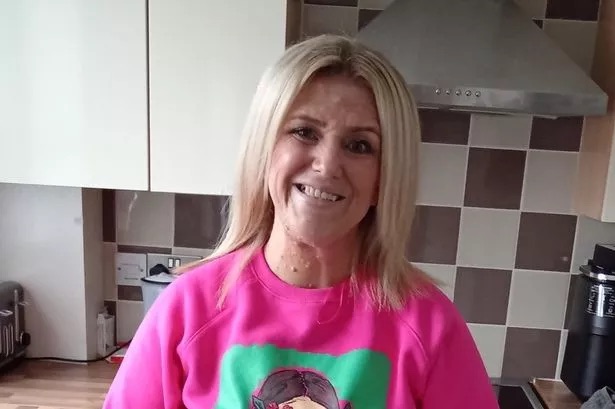Rachel Potter, a 34-year-old mother, suffers from a rare and extremely painful condition called neurofibromatosis type 1 (NF1), which causes numerous tumors to form both inside and outside her body. These non-cancerous lumps, some as large as a 50-pence coin, can appear unexpectedly. To manage her pain, Rachel takes up to seven medications daily.
The tumors are located in her brain, on her head and face, and across her back, making even lying down painful. According to The Mirror, Rachel’s condition has led her to avoid going out. Hopefully, she receives the support and treatment needed to alleviate her pain and discomfort.
Rachel described her condition as extremely painful and sometimes unmanageable. She explained that the tumors can appear anywhere on her body, and it is particularly inconvenient and uncomfortable when they develop on her face. Rachel finds it difficult to work due to her condition and avoids going out because of potential comments from others.
The lumps grow randomly, often preceded by a tingling sensation for several days. She has thousands of tumors along her back, causing throbbing pain that keeps her awake at night. Rachel faces a 60% chance of developing cancer due to the gene mutation responsible for her condition, which affects around 25,000 people in the UK, according to Nerve Tumours UK.
The tumors, which grow along nerve pathways, can be found in all of Rachel’s organs and vary in size from a pinhead to a 50p coin or a large peanut. We hope Rachel receives the support and treatment needed to alleviate her physical pain and psychological distress.
Rachel was diagnosed with her condition at age five after her mother noticed café-au-lait birthmarks on her body and took her to the doctor. When Rachel reached puberty at 12, painful lumps called fibromas began to appear, with up to 20 new ones developing each month.
She notes that these lumps do not disappear once they appear and increased by 75% during her pregnancy. Due to her heightened cancer risk, Rachel cannot go out in the sun and must undergo yearly scans. She frequently receives unwanted comments from strangers, who sometimes mistake her condition for monkeypox, chickenpox, or a dot-to-dot picture.
Rachel also has trouble with her right eye due to a lump that cannot be safely removed without risking her vision. In 2022, she had surgery to remove some growths from her mouth when they became too painful for her to eat or brush her teeth. We hope for continued progress in research for managing and treating these diseases and extend our support to Rachel.
Rachel enjoys taking baths, but using the shower is painful due to her lumps’ sensitivity to water. Even cuddling or having sex with her partner can be uncomfortable and painful. Rachel met her partner, Daniel, 12 years ago while they were in college. They got married in 2016 and have a seven-year-old son who also has NF1. Daniel takes full-time care of both of them.
Rachel shared that a month after they met, Daniel asked about the bumps on her face, and she explained they were tumors. Daniel researched the condition and was not affected by it like others might be. They started as good friends with mutual feelings and maintain open communication about topics like cuddling and s*x, which can be painful for Rachel. Daniel is supportive and encourages her not to feel ashamed, though it remains challenging. We hope their love and support for each other continue to grow stronger.
Rachel has no family history of NF1, leading her to believe the gene mutation started with her and was passed on to her child. She has always been open with her son about her condition, allowing him to touch her lumps and discussing them openly. He has inherited multiple café-au-lait birthmarks and tumors, and Rachel trusts he will discuss them with others in his own time.
They are regular people, not repulsive beings. It’s crucial to emphasize they are not contagious and should be approached with respect and kindness. They appreciate questions about their condition, as long as they are polite and considerate. Let’s continue raising awareness and fostering sensitivity towards this condition. 🙏🧡
